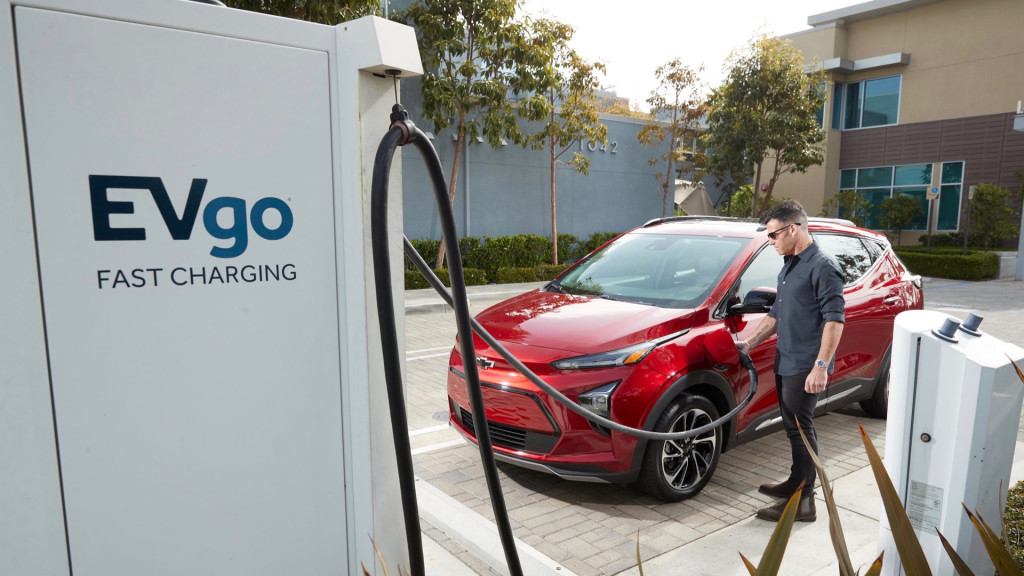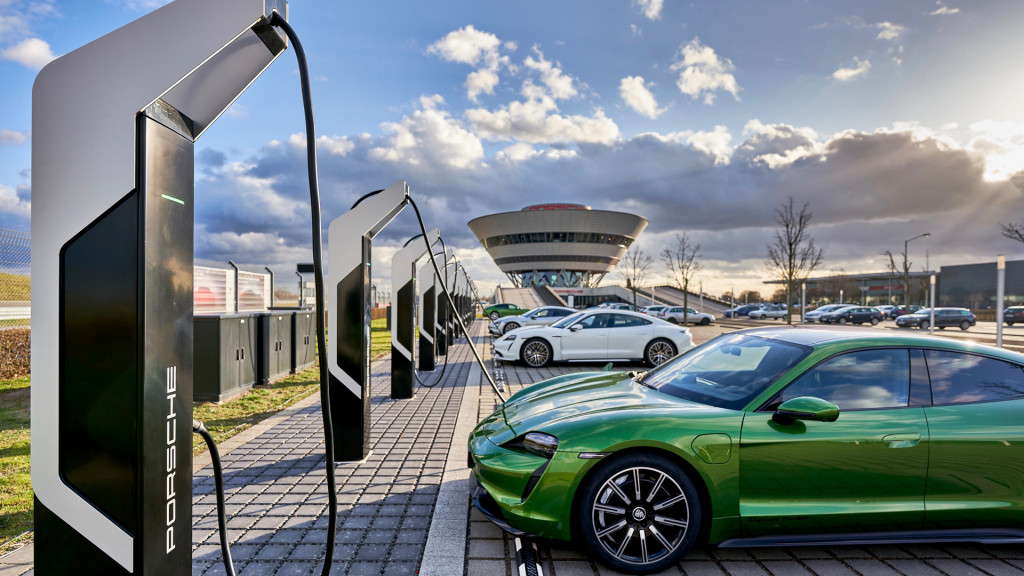One of the biggest obstacles to mass EV adoption is that charging an electric car isn't as convenient as filling up with gasoline. And charging might not meet that level of convenience anytime soon.
The Alliance for Automotive Innovation (AAI) released a policy roadmap earlier this month, but the group's suggestions don't fully address current charging problems, as detailed in a recent E&E News blog post.
For starters, charging stations generally don't display pricing clearly. You won't find signs showing a specific price, like you get at gas-station pumps, at most charging stations. The AAI has proposed making federal funding for new charging stations contingent on per-kwh pricing, but most consumers aren't familiar with that metric, E&E News pointed out.

2022 Chevrolet Bolt EUV at EVgo fast-charging station
Many charging stations also don't accept credit cards, often requiring drivers to create an account with the station operator. In the past, this meant drivers had to keep a collection of cards and fobs on hand to use different charging stations. That's been streamlined somewhat by apps, and the AAI supports universal acceptance of credit cards.
The AAI also proposed requiring charging stations stay open 24/7 to receive federal funding, but E&E noted that that many gas stations don't stay open through the night. It's worth noting that, while gas stations tend to be on dedicated sites, charging stations are often co-located with other businesses that may not stay open 24 hours a day, seven days a week.
This model could prove more convenient than a gas-station model, since it allows drivers to shop or eat while their cars charge. But it also means that, even when charging stations are located fairly close to highways, it still may take a bit of searching to find them. Finding a suitable location that's close to power and has enough room for multiple parking spaces can be difficult, Electrify America has noted.

Porsche electric-vehicle charging station
Charging sites will also soon need more space to accommodate vehicles with trailers. That's been a problem since drivers began towing with the Tesla Model X, and it's more relevant than ever as a gaggle of electric pickup trucks hits the market.
While the number of public charging stations has grown significantly, charging deserts still exist, particularly in urban areas. Much attention has been given to enabling EV road trips, but the lack of urban charging could hinder electric ride hailing, which has the potential to reduce emissions and improve air quality in populated areas.
Comparisons with gas stations inevitably leave out some issues specific to charging infrastructure, but they are appropriate in one respect. Some gas stations have added EV charging, with Shell planning to install 50,000 charging stations from subsidiary Ubitricity by 2025.












